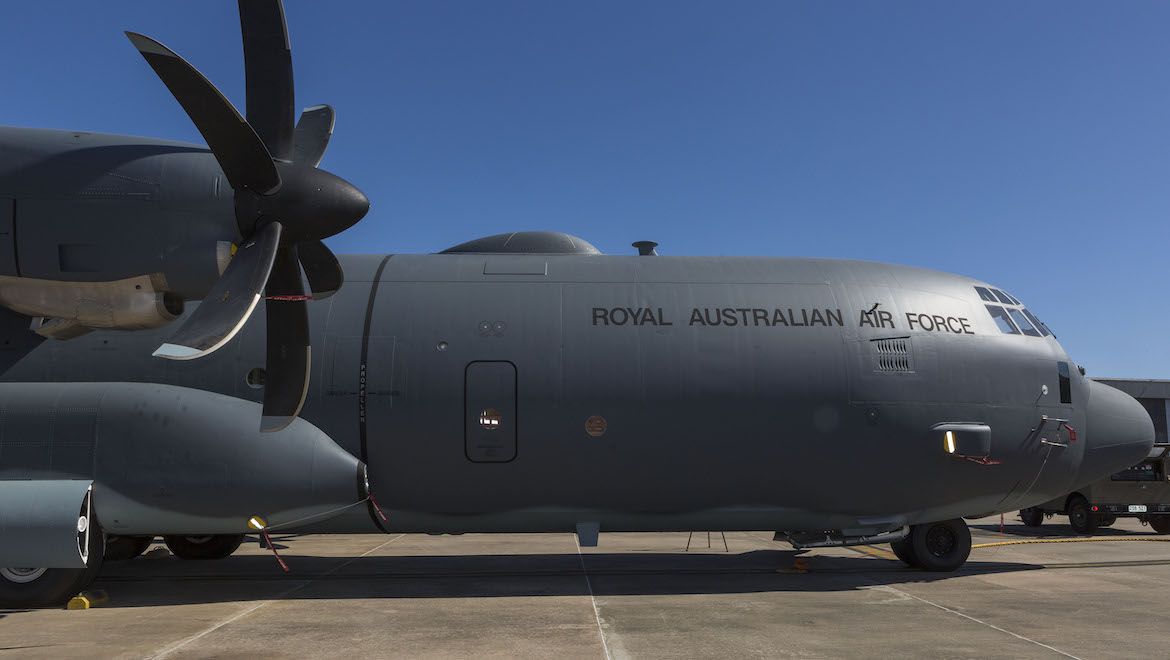
The Royal Australian Air Force (RAAF) will install a high-speed satellite communications system on an additional five C-130J-30 Hercules transports.
Defence announced on Monday the Honeywell Ka-Band satellite communications (SATCOM) system would be rolled out to the five C-130J, following a successful trial.
The first Hercules aircraft was fitted with SATCOM in 2017. The system uses the Inmarsat Global Xpress Network to provide broadband internet connectivity for high-definition video and is able to support complex mission planning whilst in flight.

The new system is in addition to the L-Band SATCOM voice and data system fitted to all 12 C-130Js.
“Our Hercules crews and passengers are often first on the scene in times of crisis, and require timely information at their destination,” Commander of the RAAF’s Air Mobility Group (AMG) AIRCDRE Bill Kourelakos said in a statement.
“Already, we’ve demonstrated the utility of this system on one Hercules, streaming video from missions in the Pacific and allowing basic Command and Control functions to be carried out from the aircraft.”
Installation of the Honeywell JetWave Ka-Band SATCOM antennas and associated systems will be completed during scheduled maintenance periods by Airbus Australia Pacific at RAAF Richmond, and all five aircraft are expected to be completed by 2022.
The RAAF conducted a six-month trial of the SATCOM system on the C-130J between June and December 2017. At the time, Defence said the trial was conducted with the support of industry partners Airbus Australia Pacific, Inmarsat, Honeywell, L-3 Communications and the department’s Capability Acquisition and Sustainment Group (CASG).
The rollout of high-speed communications is one of a number of enhancements to the C-130J fleet that have been announced or are under consideration in recent times.
In February, it was reported the RAAF was also considering the integration of Northrop Grumman AN/AAQ-28 Litening AT targeting and EO/IR pod with its fleet of 12 Lockheed-Martin C-130J Hercules airlifters.
This would enhance the C-130J’s ability to provide ISR overwatch for forces on the ground, to ensure a designated landing or extraction zone is clear of threats, to geolocate targets of interest or precision airdrop locations, or to even provide fires support to off-board shooters. For peacetime missions, a high-performance EO/IR pod could provide accurate imagery and data to support the HADR or search and rescue roles.
And in November 2018, it was announced that two C-130Js would be fitted with new external tanks, which have four tonnes of fuel capacity each.

The aircraft were deployed to Guam for the joint Operation Christmas Drop exercise conducted with US forces where food, clothing and toys are delivered to outlying communities in the Marshall Islands as part of a trial.
The additional capacity increased the amount of fuel the aircraft could offload without compromising its own reserves.
VIDEO: A look at the installation of the satellite communications system on board an RAAF C-130J Hercules for the 2017 trial from the SLDinfo Vimeo channel.




